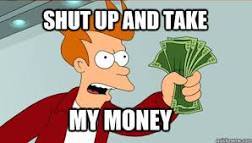So, the launch of this forum made me reflect on the Cracking The Code subreddit which never took off. Not only that, but it seems like when CTC is mentioned on other forums, there are a lot of people who are dismissive of it (“you just mean economy picking”) or downright hostile.
What do folks think is driving that? What is it about CTC that seems to make some people so defensive? Is there anything we can do to overcome those biases? Should we even try?
On the one hand, I want word about CTC to spread, because I think it could spare thousands of guitar players, especially those just starting out, from the frustration many of us who learned guitar in the stone age can relate to. On the other hand, when people are aggressively closed-minded, my instinct is to let them just lie in the bed they’ve made for themselves.
Do other CTC enthusiasts share this perception? Any suggestions about what we can do to foster positive discussion of CTC insights outside these walls?

 )
)


